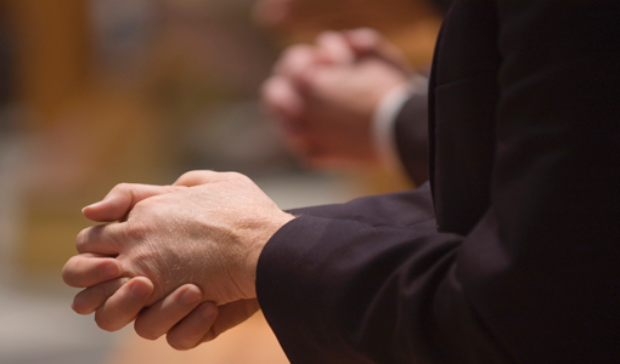A recent issue of the St. Paul archdiocesan newspaper, The Catholic Spirit, asked readers to respond to the question, “Why are you Catholic?” It occurred to me that the assumption behind this question is that being Catholic is something you choose from a wide spectrum of belief systems, as you would choose where to live or what socks to wear. But what I am learning – as I probe deeper into the mysteries of Catholicism – is that being Catholic is not merely a lifestyle choice, but an integral part of my identity as a human being. The primary reason that I am Catholic is that my parents raised me in a Catholic manner. They ensure that we received a Catholic education and remained faithful to our duty to participate in the Eucharist and assist the needs of our parish. My parents also were careful to instruct us in and guide us to embrace the moral teachings of the Church. For a long time, these moral tenets formed the basis of my faith, which seemed to develop more into a practical exercise than a personal one.
Eventually, as an undergraduate student at St. Thomas, I was drawn to courses in Catholic Studies because of the strength and virtue of the professors teaching in the program, not to mention the enthusiasm and character of the students enrolled. I was intrigued by this combination of intellectualism and authentic, personal piety, and I found myself desiring not only to understand the roots of my faith – which had been submerged beneath the surface of my day-to-day life – but also to live it more intentionally.
When the Liturgical Choir, of which I was a part, embarked on a pilgrimage to Rome to assist at the Holy Father’s Christmas Eve Mass in 1997, I became more keenly aware that I belonged to something larger and more profound than myself, my school or my country – I was a member of the Universal Church. For the first time, I realized that the basis of my identity was more fundamental than even my relationship to my family – it was rooted in my relationship with an unseen force that was with me no matter where I went or what I did. Consequently, I felt special, unique and important. And a little bit unnerved.
Sharing in such an intense personal relationship meant that I was no longer the center of my life, and that it wasn’t enough for me to act like a good person – I had to be a good person, in the midst of a cynical, secular world, no less. This challenge left me feeling on many occasions that living the Christian life was too demanding, all but impossible and ultimately not worth the trip. The temptation to abandon ship, which I fell into often, succeeded in confusing me about my identity: Today I’m a Christian, tomorrow I’m a “heathen.” I can be a saint, I can’t be a saint.
I began to realize that part of my struggle in living the life of a Catholic Christian was that I still didn’t really know with whom or for whom I was living it. Because my practice of devotion lacked an understanding of the history and depth of Catholicism, “truth Himself” had eluded me in my attempts to embrace the tradition of the Church. It became apparent to me that I needed to learn more about Christ’s Church if I were to understand this mysterious person and somehow dedicate my life to Him.
It was because of this idea that I left a job in publishing to pursue further education. A desire to fill the gaps in my catechesis, plus an interest in revisiting what had initially directed my steps along this path – namely, Catholic Studies and a visit to Rome – made it easy to chose the interdisciplinary program at St. Thomas, not to mention enter into it with excitement and zeal. In pursuing this degree, I have been able to join my cognitive understanding of the faith to my personal expression of it, by joining in a sacramental life with the faculty, staff and students, and engaging with them aspects of the modern world from a Catholic perspective. As a result, my hunger for Truth grows every day; and in that, too, a sense that I am becoming more whole.
While I can’t say with certainty where God is leading me in all of this, I know it won’t be enough simply to add this experience to my resume. My first year of graduate studies has re-ignited my love of learning, and I have found hope for my Christian calling, especially within the Catholic formulations of unity, family life and the Church. And the impulse to share these truths with others, whether by teaching, writing or simply living out my vocation, becomes stronger the more I grow in understanding. Being Catholic, for me, is no longer about choosing in favor of a system of beliefs – it is about accepting an invitation to understand myself in relationship to others, most importantly Christ.







